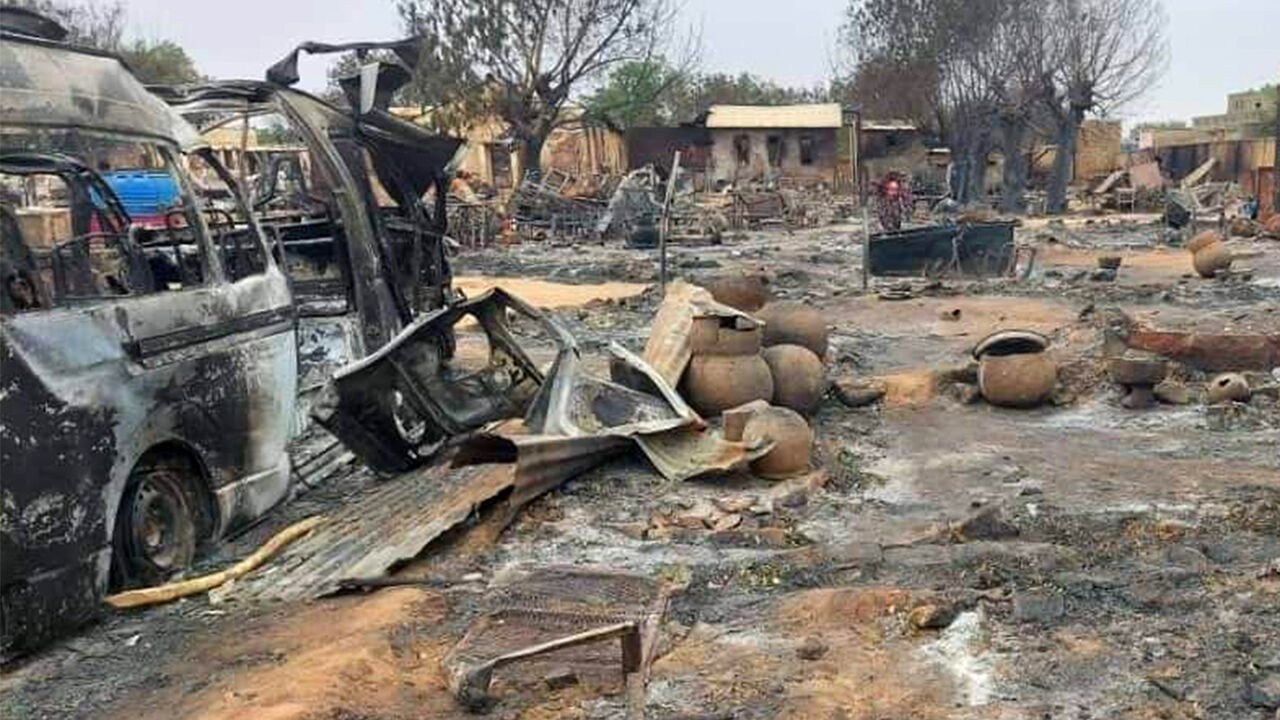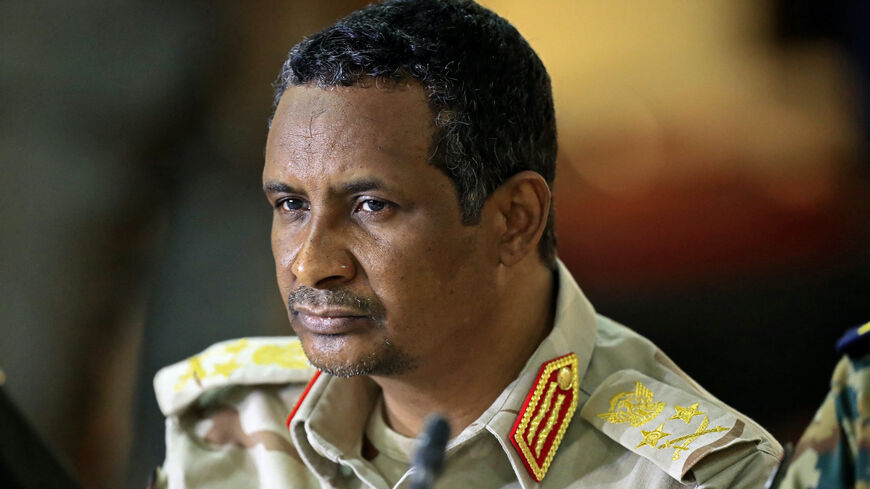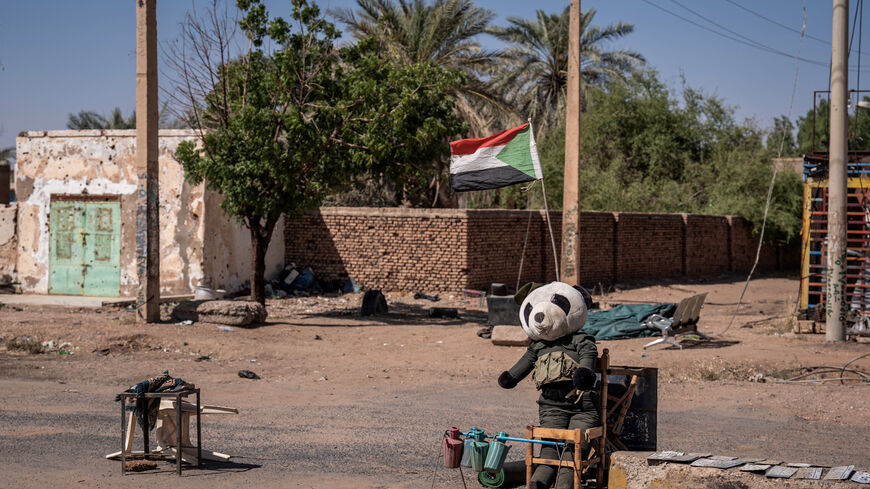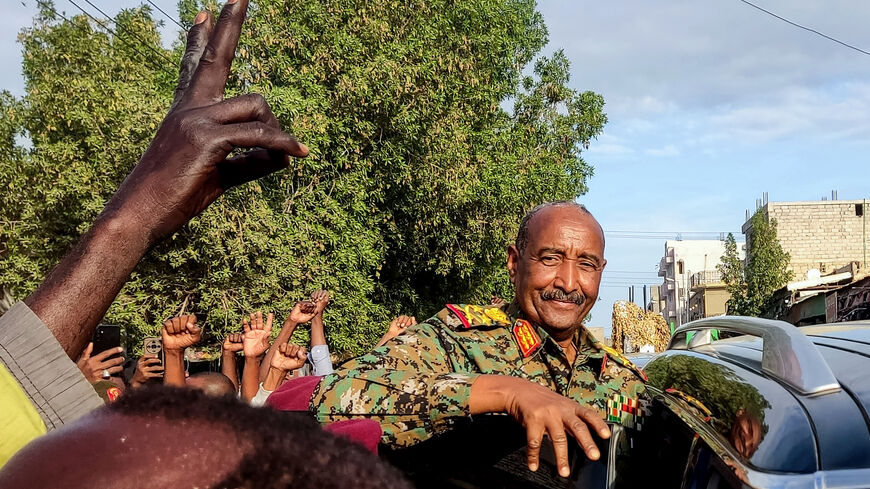UN accuses Sudan’s RSF of rape, ethnic killings as Hemedti courts region
A new UN report has documented the shocking brutality of the Rapid Support Forces led by Mohamed Hamdan Dagalo in Sudan’s Darfur region.

A new report from the United Nations records further horrors committed by the paramilitary forces and allied militias that have been fighting the Sudanese army over control of Africa’s third-largest country. The 10-month struggle is raging on barely noticed even as it threatens to engulf its fragile neighbors.
The report presented to the UN Security Council and shared Thursday by the Associated Press exposes anew the brutality of the Arab-dominated Rapid Support Forces led by Mohamed Hamdan Dagalo in Sudan’s Darfur region. The abuses, which the United Nations says might amount to war crimes, include targeted ethnic killings, forced displacement, looting and rape, including of minors. Critics draw parallels with the genocidal violence that beset Darfur in the early 2000s and led to the deaths of more than 200,000 people. The United States stated in December that both of the warring parties had already committed war crimes.
The day the report surfaced, the generals were on regional tours to rally diplomatic support. Dagalo, who is backed by the United Arab Emirates and Russia, was in Tripoli to meet with Prime Minister Abdul Hamid Dbeibah, the appointed head of Libya’s UN-supported Government of National Unity, which has struck a neutral stance. His rival, Abdel Fattah al-Burhan, was being hosted in Cairo by his backer, Egyptian President Abdel Fattah al-Sisi.
“We need to bring all the neighboring states that have influence over both of the parties together, and there needs to be a diplomatic coalition of states that forces these parties to suspend the conflict,” said Cameron Hudson, a Sudan analyst at the Center for Strategic International Studies, a think tank in Washington.
Yet one “can be sure” that none of the regional coalitions aligned with Dagalo or Burhan “are telling them to stop the fighting as they pursue their individual agendas,” Hudson told Al-Monitor.
A forgotten war
With the world’s attention focused on the conflicts in Gaza and Ukraine and the upcoming presidential elections in the United States, little if any diplomatic energy is being invested into ending Sudan's conflict, which erupted last April in the capital Khartoum and has since spread across the country. According to the United Nations, more than 6 million civilians have been internally displaced and a further 25 million are in need of humanitarian aid. Over half of that number are children.
At least 13,500 people have died in a conservative estimate, as unrecorded numbers of people are dying of starvation every day. Some 12 million children have been left out of the education system and 70% of the country's hospitals have been damaged in the conflict.
Echoing widespread sentiment across Sudan, Omnia Mustafa, 21-year old who has been displaced by the fighting four times so far, lamented in a recent post on X, “We are in an endless void, helplessly screaming and thrashing, hoping to be heard. But no one is answering. … Even if we were wiped out, nobody will care.”
If for cold, hard strategic reasons alone, the world should care. “We are talking about a country of 50 million on the verge of famine, with a genocidal aspect to what’s happening in Darfur, and with Red Sea access,” noted Jalel Harchaoui, an associate fellow at the Royal United Services Institute, a UK think tank. Noting that the conflict in Libya, a country of 10 million, has infected the entire Sahel with terrorism, instability and coups and caused a human trafficking nightmare for Europe, Harchaoui told Al-Monitor, “It doesn’t take a genius to figure out what the implications from the collapse of a far larger country, Sudan, are.”
“Except for Egypt, every country that Sudan borders is either a weak, failing or failed state,” Hudson said. “Sudan is a black hole that will draw all the countries surrounding it into that black hole, and not only in Africa but across the Red Sea to Yemen, to Saudi Arabia,” Hudson added.
The disruption by Iran-backed Houthi rebels from Yemen of Red Sea commercial shipping lanes is compounding Sudan’s woes. The International Rescue Committee, a major donor, said this week that because of the risks, its shippers would be diverting supplies for Sudan to the Jebel Ali port in the United Arab Emirates on the eastern side of the Arabian Peninsula. The shift will raise transportation costs by more than 40% and more than double the delivery time, the agency said.
With the UN's $4.2 billion appeal for humanitarian aid for Sudan 90% unfunded, Sudan is facing “a catastrophic hunger crisis,” with seven million facing the risk of extreme hunger by June, the agency warned in February.
Meanwhile, Sudanese Finance Minister Gibril Mohamed announced this week that Sudan’s economy had shrunk by 40% last year. State revenues plunged by 80%. It was, he said, the worst period in the country’s history.
America acts
On Monday, the United States appointed Tom Perriello as a special envoy to Sudan. US Secretary of State Antony Blinken said Perriello would be tasked with driving “engagement with partners in Africa and the Middle East to stop this senseless conflict.” But just how hard will he be willing to push them, in particular the United Arab Emirates?
The Emirates has long been accused of funneling weapons to the RSF because it believes that Burhan is under the sway of its Muslim Brotherhood foes. At the same time, the RSF provided mercenaries for the UAE’s war against the Houthis in Yemen. In exchange, the UAE has allegedly facilitated the smuggling of vast amounts of gold out of areas controlled by RSF forces, notably the Jebel Amer gold mine in Darfur. The sales are thought to help Dagalo’s war chest — and personal finances. Emirati officials deny the claims. However, in January, a UN panel of experts identified the UAE as a key source of weapons and money for the RSF.
Dagalo, who is also known as Hemedti or “Little Mohamed,” was a fighter in the Janjaweed militia that unleashed a reign of terror in Darfur and a former ally of Sudan’s pro-Muslim Brotherhood strongman, Omar al-Bashir, who was deposed in the 2019 revolution. Yet he has now positioned himself as a pro-secular Western-friendly reformer as opposed to Burhan, whom he depicts as a Muslim radical, never mind that the pair banded together to overthrow Bashir.
The trust deficit between the pair spiraled into open conflict as Dagalo resisted Burhan’s demands to submit his forces to the Sudanese army’s control.
In the early days of the war it was widely assumed that the United States and other Western governments would support the Sudanese Armed Forces, not least because of Dagalo’s bloodstained past. But that didn’t happen for two reasons, Harchaoui contends. One is that as a ground force, the RSF proved to be far stronger. “In order to help one side you need it to be doing a decent job. The SAF wasn’t at all,” Harchaoui said. The second, he added, was the halo effect of the UAE over its RSF proteges. “The UAE is enjoying an incredible amount of prestige in Western capitals," Harchaoui argued, saying that Western governments "are not in business of contradicting or taking action against an actor being supported by the UAE.”
Red Sea dominance
It certainly hasn’t helped that Iran is among Burhan’s backers as it scents an opportunity to expand its influence to the opposite side of the Red Sea. (The Emiratis covet Port Sudan as well.) In October, Sudan and Iran announced they were resuming diplomatic ties after a seven-year hiatus that was triggered by the storming of the Saudi Embassy in Khartoum by Iranian demonstrators.
Iranian support for Khartoum is not new, recalled El Mahdi Habib-Alla Ali Al Sanosi, a Sudanese analyst who has advocated for peace with Israel and is the president of the American Sudanese Council based in California. This is because Burhan’s administration is stuffed with holdovers from the Bashir regime and Iran was among its prime sponsors, Sanosi told Al-Monitor.
To be sure, Burhan is nothing if not ruthless. His forces have indiscriminately bombed RSF-held areas, killing countless civilians in the process. Sudan’s de facto leader has also faced sharp criticism for barring aid deliveries from Chad on the grounds that they may contain weapons destined for Dagalo. However, the SAF has not faced the same accusations of sexual violence and ethnic cleansing that are being leveled against Dagalo’s men.
“Most people complain about the RSF specifically using sexual violence as a weapon against communities. That is their ideology,” said Mustafa, the displaced 21-year-old woman. “Whenever they invade a new area they place it under siege, preventing people from moving in and out and preventing medicine and food from coming in,” Mustafa told Al-Monitor. This is why her ailing parents were forced to flee their home in Gezira state after it fell under RSF control.
Moe Ali is a Sudanese doctor based in Scotland who closely monitors the situation. “The RSF is programmed to wipe out mini-tribes in Western Sudan ever since the [war in Darfur in the] early 2000s. It’s going from village to village pillaging, burning and raping. The Sudanese Armed Forces do not rape,” he said. Unlike during the Darfur conflict, which was largely tribal, the RSF is currently “targeting everyone and everything,” Ali told Al-Monitor.








